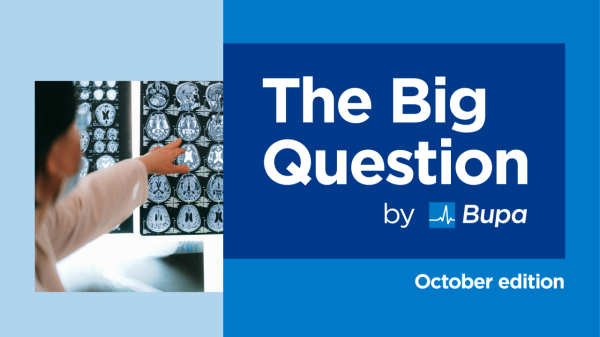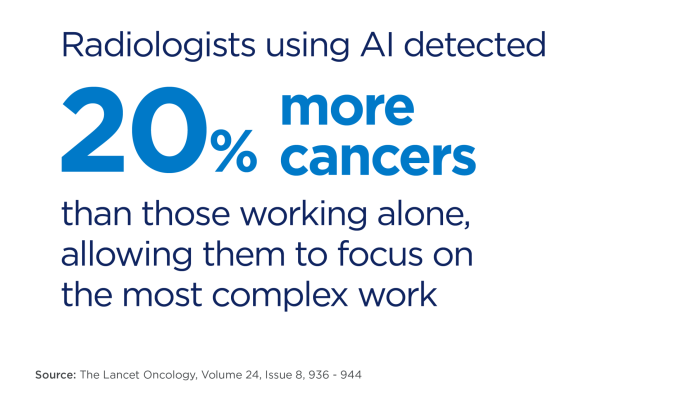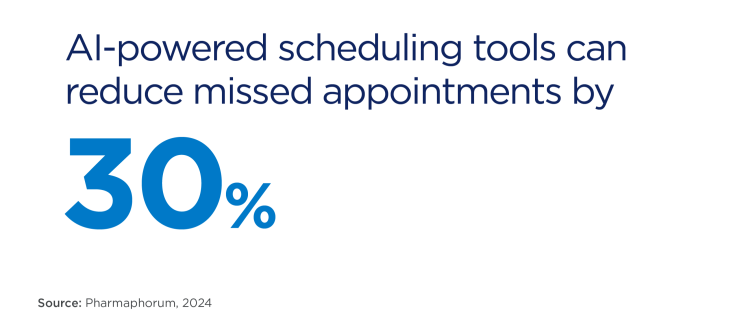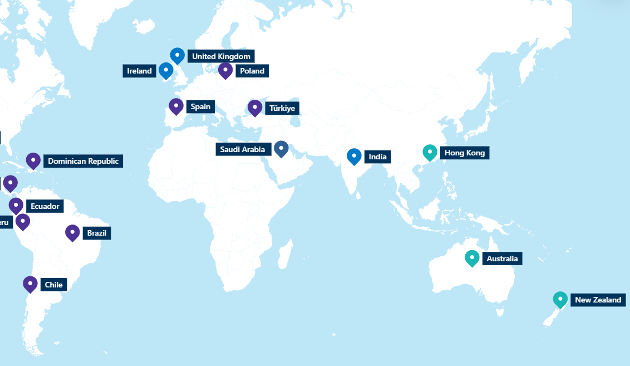
AI is already making an impact in the healthcare industry and has the potential to be a real asset to clinicians as well as patients, helping transform everything from accessing healthcare to operational efficiency and predictive analytics.
Here are six ways healthcare can lead the way in AI innovation:
1. Proactive and personalised care
AI is starting to be used across the healthcare sector to help predict health risks and allow for proactive interventions. The technology allows for more accurate forecasting of health outcomes, enabling personalised treatments, particularly in oncology.
AI-powered apps can also improve access to healthcare as they can often be used anywhere, anytime. In Spain, Blua, digital health by Bupa, offers mental health support 24/7. It uses data points such as a user’s habits and mood, and leverages AI to provide personalised advice or a remote appointment with a mental health nurse. Similarly, AI-driven physio support tools are enabling our customers to self-manage musculoskeletal conditions at a time and place that is convenient to them.
2. Clinical efficiencies and support
A 2023 study found that 74% of patients don’t know the right level of care for their needs. AI-driven symptom checkers like Infermedica and Mediktor are one way to help patients determine the possible causes of their symptoms and direct them to the right solution, whether it’s self-management or the emergency room. They also give healthcare professionals more information up front, reducing the time spent getting up to speed during the appointment. If done right, this can all add up to better and faster care.
AI is becoming more widely used in radiology at the diagnosis stage, helping to automate the analysis of more routine scans or pick up very subtle signs on images that humans might miss. A study in The Lancet Oncology reported that researchers used AI to screen mammograms in over 80,000 Swedish women. In half of the cases, the mammograms were read by both AI and a radiologist, while the other half were examined by two radiologists. The AI group had 20% more cancers detected. This shows the potential for AI to be a critical tool for radiologists, allowing them to focus on the most complex work while leaving the routine cases to AI. Good incorporation into clinicians’ workflows and more real-world evaluation will be important for widespread adoption.

3. Operational efficiency
There are already plenty of examples from around the world of AI being used to drive efficiency. For example, our business in Spain designed a tool to make use of last-minute cancelled appointments. It finds patients that have upcoming appointments for a similar service and offers them the available slot, helping to reduce waiting lists. And a recent pilot featuring AI-assisted appointment scheduling software created by Deep Medical showed a 30% fall in missed appointments over six months, which means more time available for patients who need it.
AI-driven predictive maintenance systems are also helping hospitals avoid downtime by forecasting when medical equipment might need repairs. Philips reports that this approach has cut service-related downtime by up to 30%, keeping critical equipment up and running for essential patient care.

4. Responsible use of AI
Given the sensitive nature of healthcare data and decisions, the sector is well positioned to set high standards for ethical AI adoption.
To keep moving forward with AI, it is crucial that our industry develops it safely and responsibly. That means being open about how it works, taking accountability and bringing together diverse teams from both the private and public sector to think through the social and ethical impacts of new systems.
Patient privacy and bias are two areas of particular interest. Securely collecting data for effective AI algorithms is complex and must begin with gathering diverse, representative data that includes different demographics.
5. Data integration
Any application of AI is reliant on data. Developing effective AI in healthcare requires access to high-quality data, while ensuring that approaches to data security and privacy balance both risk and opportunity.
The integration of patient data – from text to imaging to blood results – will lead to exciting applications of generative AI that can greatly enhance healthcare for both clinicians and their patients. In the longer term, the focus could shift to big data, including the integration of datasets from sources such as wearable technology.
6. Skills training
For AI to reach its full potential, everyone in the healthcare sector needs to be upskilled in how to work with it – from technical to clinical to operational staff. Ultimately, most service transformation will be led by people and supported by a safe and enabling environment, so more initiatives are needed to empower people with the right digital skills.
At Bupa, for example, we run a programme called B Disruptive. This annual two-day hackathon aims to upskill all employees around AI technology and unlock their ideas on how it can provide a better experience for customers.
Accelerating the AI revolution
While AI will never replace the care and empathy of a doctor or nurse, in the future, it can become the ultimate assistant for them. It can save their time for where it is needed most, supporting them to make better decisions and provide better care.
The potential impact of AI in healthcare is so huge, and so needed, that our industry can take the lead in responsible AI innovation, and help define the technology’s future.




